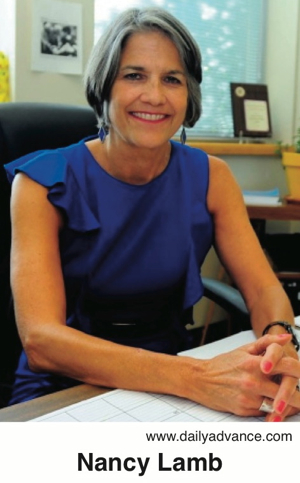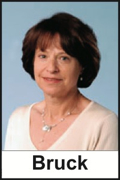Rascals case in brief
In the beginning, in 1989, more than 90 children at the Little Rascals Day Care Center in Edenton, North Carolina, accused a total of 20 adults with 429 instances of sexual abuse over a three-year period. It may have all begun with one parent’s complaint about punishment given her child.
Among the alleged perpetrators: the sheriff and mayor. But prosecutors would charge only Robin Byrum, Darlene Harris, Elizabeth “Betsy” Kelly, Robert “Bob” Kelly, Willard Scott Privott, Shelley Stone and Dawn Wilson – the Edenton 7.
Along with sodomy and beatings, allegations included a baby killed with a handgun, a child being hung upside down from a tree and being set on fire and countless other fantastic incidents involving spaceships, hot air balloons, pirate ships and trained sharks.
By the time prosecutors dropped the last charges in 1997, Little Rascals had become North Carolina’s longest and most costly criminal trial. Prosecutors kept defendants jailed in hopes at least one would turn against their supposed co-conspirators. Remarkably, none did. Another shameful record: Five defendants had to wait longer to face their accusers in court than anyone else in North Carolina history.
Between 1991 and 1997, Ofra Bikel produced three extraordinary episodes on the Little Rascals case for the PBS series “Frontline.” Although “Innocence Lost” did not deter prosecutors, it exposed their tactics and fostered nationwide skepticism and dismay.
With each passing year, the absurdity of the Little Rascals charges has become more obvious. But no admission of error has ever come from prosecutors, police, interviewers or parents. This site is devoted to the issues raised by this case.
On Facebook
Click for earlier Facebook posts archived on this site
Click to go to
Today’s random selection from the Little Rascals Day Care archives….
Click for earlier Facebook posts archived on this site
Click to go to
Today’s random selection from the Little Rascals Day Care archives….
‘A personal mission to have Bob put behind bars’
 June 14, 2015
June 14, 2015
Long after Bob Kelly reclaimed his freedom, he continued to fear that prosecutor Nancy Lamb was searching for yet another excuse to send him back to prison.
His apprehension was entirely reasonable.
In 1996, less than a year after the North Carolina Court of Appeals overturned Kelly’s conviction in the Little Rascals case, Lamb had had him indicted on a new round of sex charges, supposedly unrelated and transparently dubious.
According to correspondence I recently happened onto, a lawyer who attended a scheduling conference for Kelly’s upcoming trial was startled by Lamb’s unprofessional demeanor:
“It was very obvious… that Nancy is on a personal mission to have Bob put behind bars for something. Her voice and her hands were noticeably shaking throughout the meeting and at times she wiped moisture from her eyes.
“I just don’t see how she can go through an entire trial without exposing to the jury this ‘witch hunt’ mentality that has consumed her….”
For whatever reason – she claimed, as usual, to be looking out for the ‘victim’ – Lamb’s decade-long pursuit of Bob Kelly ended anticlimactically. She dropped the last charges in 1999.
Disapproval of prosecutors ‘about to hit a tipping point’

facebook.com
Juleyka Lantigua-Williams
May 31, 2016
“A consensus is building around the need to seriously rethink the role of the prosecutor in the administration of justice. Power dynamics are unbalanced, sentencing guidelines are outdated, and old-fashioned human biases persist. And prosecutors – singularly independent agents in a justice system roiling in turmoil – have been facing growing criticism and public distrust for some time, and that disapproval is about to hit a tipping point.
“It’s time to curtail the power long held by these officers of the court as they promote justice, ensure fairness, and enhance public safety.”
– From “Are Prosecutors the Key to Justice Reform?” by Juleyka Lantigua-Williams in the Atlantic (May 18)
Is the North Carolina Bar ready to take the first step toward holding prosecutors accountable?
![]()
Parents saw nothing amiss until rumors took hold
 April 18, 2012
April 18, 2012
“One of the more surprising aspects of this (Little Rascals) case…. was that none of the parents… had observed anything that caused them to suspect their children were being abused or tortured during the period of the alleged abuses; there were no reports of unusual incidents from their children.
“Nor did the parents detect anything unusual when, without notice, they dropped in early to pick up their children from the day care (e.g., to take them to a doctor’s appointment).
“It was only after allegations began to grow that parents also began to remember events or behaviors consistent with their child being abused.”
– From “Jeopardy in the Courtroom: A Scientific Analysis of Children’s
Testimony” by Stephen J. Ceci and Maggie Bruck (1995)
Prosecutor Nancy Lamb gave the Charlotte Observer her response to “Jeopardy in the Courtroom”: “It’s unfortunate that these two people who have a good reputation – or at least Ceci did – have written this. It’s garbage.”
The ugly truth about ‘Nancy Lamb’s state of mind’
 March 14, 2012
March 14, 2012
“Prosecutor Nancy Lamb practiced a little ‘voodoo’ psychology by telling the jury that when Dawn Wilson held and played with her child during breaks in the trial, it wasn’t because she loved the child – it was all a show for the benefit of the jury.
“No psychologist could have accurately reported on the state of mind or the motives of Wilson when she played with her child. However, had a psychologist known that Wilson had been offered a plea bargain which included no jail time if she pointed the finger at the others, and had told prosecutors to ‘Find yourselves another patsy,’ that psychologist might have known something about Nancy Lamb’s state of mind when she made those statements.”
– From “Due Process Is Good Psychology,” article in
Michigan Lawyer Weekly by Michael G. Brock
Defending this smear, one of many, Lamb said Wilson was presenting herself as a good mother, and “We had to remove that mask.”
In 1995 the N.C. Court of Appeals overturned her conviction. And then of course the prosecutors rushed to apologize to Dawn Wilson for their disgraceful vilification.











0 CommentsComment on Facebook